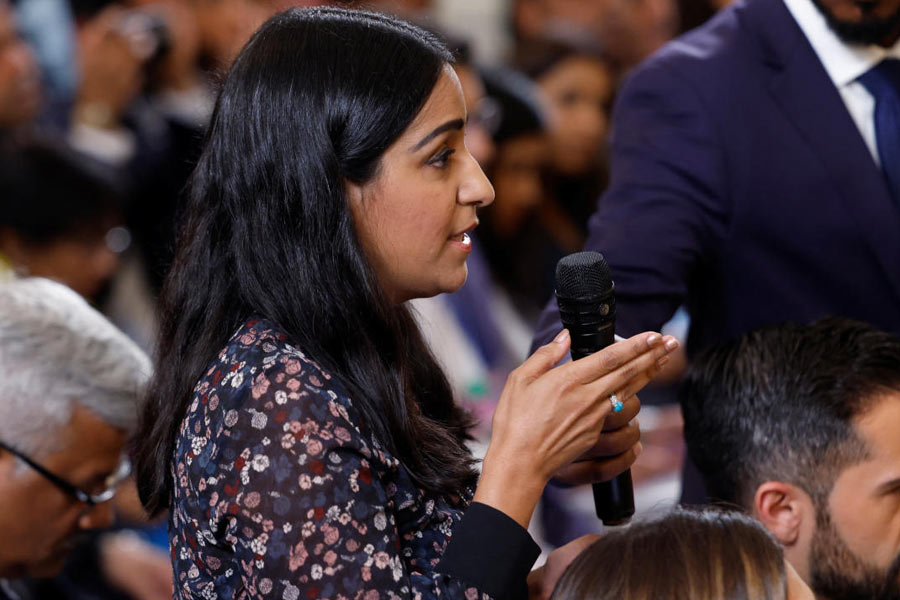It took one question to undo any gains from the painstaking paeans to democracy that Prime Minister Narendra Modi sang in the United States of America last week. The brutal trolling of a reporter from The Wall Street Journal of mixed Indian-Pakistani parentage for askingMr Modi a question about his government's human rights record, especially with regard to Muslims, has exposed to the world the sad state of democracy and the press in India. Members of the ruling Bharatiya Janata Party described the question as "motivated". Soon, a tornado of insults, insinuations and threats targeting the reporter flooded her social media timelines, forcing her publication, the White House Correspondents’ Association and the White House itself to push back, condemning the personal attacks on the reporter. If those interested in India around the globe wanted an answer to the reporter’s question, they would have found it not in Mr Modi’s boilerplate response, where he insisted that there was no discrimination of any kind in India, but in the vicious harassment of the journalist for daring to do her job. For while the government of India will no doubt — at least formally — distance itself from the attacks on the US-based reporter, it cannot absolve itself of responsibility.
By now, the script is familiar to anyone who follows the Indian news media landscape. Indian journalists who ask those in power uncomfortable questions or try to hold them to account through their reporting — as is their professional duty — have not just been trolled on social media but have, far too often, faced direct physical intimidation and threats. Journalists, especially in Jammu and Kashmir and Uttar Pradesh, have been arrested and kept in prison for years on unfounded charges and under anti-terrorism laws. Government agencies have raided media organisations — Indian and global ones like the BBC — right after they have published work critical ofMr Modi’s administration. Documentaries that dent the carefully cultivated image of the prime minister as a statesman have been banned. Incidentally, State actors, as a Delhi-based think-tank has reported, have emerged as the principal threat against journalists in India. In this context, the question could have been a moment forMr Modi's government to reflect on whether it needs course correction — for its global image, if nothing else. Constant feedback and self-correction are what make democracies sustainable. Tough questions from journalists serve as the mirror that enables that. At the moment, the reflection is not pretty.










